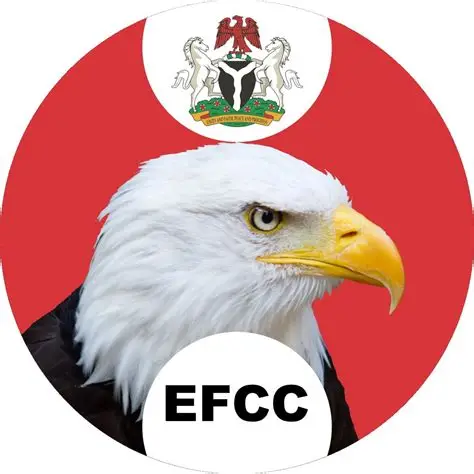A group, Concerned Nigerians for Transparency and Justice (CNTJ), has urged the Economic and Financial Crimes Commission (EFCC), to make public its interim report on investigations into the alleged $4 billion fraud linked to the failed rehabilitation of Nigeria’s Port Harcourt, Warri, and Kaduna refineries under former NNPCL Group Chief Executive Officer, Mele Kyari.
According to the group, six months is enough for the anti-graft agency to let Nigerians know what really happened.
This was contained in an open letter to the EFCC chairman, signed by Comrades Obinna Francis and Adamu Musa, on behalf of a coalition of civil society groups with special interests in the anti-corruption war.
A copy of the letter, which was read to journalists by the duo in Abuja on Tuesday, underscored the urgency of transparency amid Nigeria’s economic challenges.
The open letter also highlighted public outrage over the refineries’ failure to produce fuel despite Kyari’s high-profile commissioning ceremonies, which promised an end to fuel imports.
READ ALSO: EFCC arrests 28 suspected internet fraudsters in Kwara
According to the CNTJ, the severe economic implications of the alleged mismanagement of a whopping $4 billion, which is equivalent to trillions of naira, prevented the funding of interventions in critical sectors of the economy like healthcare, education, and infrastructure.
The coalition’s demand is coming at a time Nigerians are grappling with soaring fuel prices and inflation which were clearly exacerbated by the refineries’ continued dormancy.
A particularly explosive allegation in the letter alleged that $1 billion of the fund was diverted to finance the All Progressives Congress (APC) 2023 election campaign, potentially violating provisions of the 2022 Electoral Act.
CNTJ insists that the EFCC must address this and other questions about the remaining $3 billion, including who authorised disbursements and whether funds were laundered through associates.
In the letter, CNTJ stated, “We write as a civic coalition deeply invested in promoting accountability and protecting public resources. Corruption, when left unchecked, undermines democracy and impoverishes millions of Nigerians.
“Kyari’s dismissal was linked to public outcry over the alleged embezzlement of $4 billion, with the refineries remaining idle despite promises of restored functionality, leaving citizens questioning where the money went.”
The coalition’s open letter hailed the EFCC for its initial actions, which included summoning Kyari for questioning and engaging other parties implicated in the scandal.
The coalition described the probe as a litmus test of the EFCC’s commitment to accountability, especially given its recent handling of high-profile cases like that of former Kogi State Governor Yahaya Bello.
CNTJ further argued that the $4 billion fraud is not an abstract issue but a direct contributor to Nigeria’s economic woes, with the Minister of Finance admitting struggles to fund the national budget.
The missing funds, the group further argued, would have gone a long way to alleviate hardships like tripled transport fares and record-high food prices, which have left families struggling.
The letter read in part, “The controversy over the refinery rehabilitation fund cuts to the heart of Nigeria’s current economic crisis. At current exchange rates, the missing $4 billion translates into several trillions of naira—enough to finance substantial portions of the federal budget, pay down debts, and provide direct relief to millions of suffering families. The situation is doubly tragic because it compounds the hardships already facing ordinary Nigerians.”
The group further alleged that, “Our findings bring to light a troubling allegation: that $1 billion from the refinery funds was diverted to finance the 2023 campaign of the APC. If true, this represents not only misappropriation but also a violation of the Electoral Act 2022.
READ ALSO: NBA, EFCC agree to deepen partnership in anti-corruption efforts
“If $1 billion went into campaign activities, then Nigerians must be told: what became of the remaining $3 billion? Who authorised such disbursements? Into whose accounts were these sums transferred?”
CNTJ warned that failure to provide clarity has the potential of eroding public confidence in governance, particularly at a time when Nigerians are bearing the brunt of economic mismanagement.



